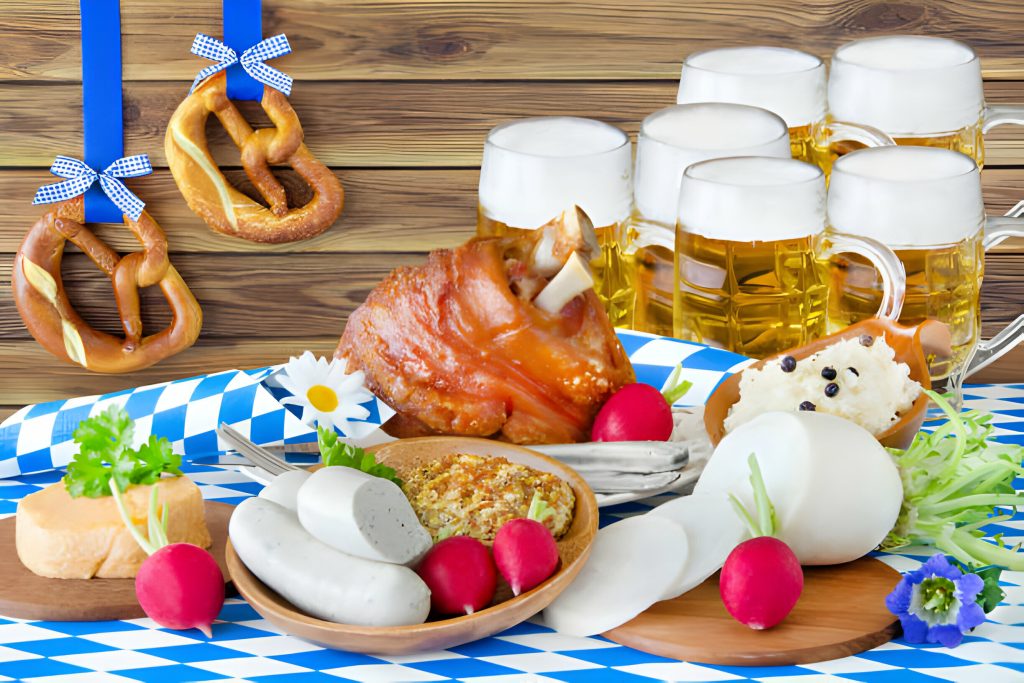Bavaria is situated on the southeastern side of Germany and embodies the region’s rich cultural heritage and diversity. This region has played an important role in shaping the nation’s identity. Besides being a cultural hotspot, Bavaria is famous for its stunning landscapes. But the distinct traditions and medieval towns make it attract more and more people from various countries. The Bavarian culture features traditional outfits, cuisine, and folk music. The acceptance and authenticity of the Bavarian culture have made it one of the most famous traditions in the world.
If you have been searching for Bavarian History and the influence of Bavaria on German culture, you are in the right spot. Your search is over now. In this blog post, we will delve into the rich history of Bavaria and explore its influences on German culture. Let’s crack it all together!
History of Bavaria

If you want to explore the influence of Bavaria on German culture, you must know the history of it. Interestingly, the Bavarian history intertwined with the Celts, followed by the Romans leaving behind the Limes. When the Roman dominance faded in the area, the German tribe arrived in the region. These tribes shaped the real cultural foundation of Bavaria, Germany. The authentic essence, adaptability, and worldwide acceptance made this area flourish and reach today’s status.
Emergence of Duchy
It was the medieval period when the world witnessed the emergence of Ducky in Bavaria. When discussing the Bavarian state’s formation, we must take advantage of the Agilolfings. It was a noble family that played a key role. Therefore, in the 8th century, Tassio III took charge of the first Duke of Bavaria. During this time, Bavaria was integrated with the Carolingian Empire. Following this, the region is set on a track to shape the culture for centuries. Today, we witness the legacy of Bavarian culture after the passage of centuries.
Cultural Boom
The ascent of the Wittelsbach dynasty is a significant chapter in Bavarian history. Under their rule, Bavaria experienced a cultural boom. Besides that, there was a very positive upcurve in education, architecture, and art. To add more, the inauguration of the University of Ingolstadt is a bare witness to the commitment of Bavarians to intellectual pursuits. As we have mentioned earlier, it was the time when several architectural masterpieces were also built. Some of them include Nuremberg Castle and Munich Residenz.
Religious Influences
The catholic church played a significant role in shaping the religious element of Bavarian culture. To put it in simple words, spiritual practices have great impacts on the social norms, education, and art of the area. If you visit Bavaria now, you can see many monasteries and churches that add a distinctively religious character to Bavaria. Besides the religious monuments, the sacred occasions and events influenced the traditional landscape and the cultural nuance.
Bavarian Traditions

Bavaria is a region of Germany studded with lively festivals and vibrant traditions. Together, these have become the rich culture of Germany as a whole. When discussing German culture, we can always think of having Oktoberfest. It is also known as the largest beer festival in the world. Being a world-renowned festival, it grabs the attention of millions of people every year. The authentic leather costume for men and women in leather lederhosen is the favorite of many fashion and styling enthusiasts. Besides this, a gender-specific dress only specific to women is also famous for its authenticity, style, and vibe. This traditional attire has become an iconic symbol of Bavarian’s commitment to enduring the region’s culture.
Bavarian Cuisine

The traditional cuisine of Bavaria reflects the agricultural roots of the region. Among the tastiest cuisines include pretzels, sausages, and cream desserts. These culinary delights reflect the resourcefulness of Bavarian locals in navigating through the challenges they faced due to the region’s diverse geography. Besides all that, traditional beers hold a significant place. The most exciting thing about Bavarian brews is that they are traditionally made using the original ingredients.
Bavaria That You See Now!
With various ups and downs, 19th and 20th century events were the turning point for Bavaria. The most important event was the transition of Bavaria from a kingdom to a republic. The change in political ideologies was the main cause of this evolution. Interestingly, Bavaria’s role in forming the Federal Republic of Germany must be remembered. In this region, Munich became an economic and cultural hub. This city is located in the heart of Germany.
The popularity of Bavaria has become phenomenal because of its affiliation with the Oktoberfest festival. Many people worldwide land in Munich every year to participate in the world-famous festival. If you are a cultural enthusiast, consider visiting this region to satisfy your cultural thirst.
Final Verdict
The history of Bavaria is a musical tale that dates back centuries. If we look back at the region’s history, it has undergone complex influences with time. The authenticity and adaptability of the culture made it stand the test of time. The same is the reason people now know this area and culture. When we talk about the Bavaria of today, it is a beautiful scenic destination known for its cultural nuance and the rich familial heritage of the region. When we trace the history of Bavaria, we get to see the history of the area and the legacy of German culture that has come this far.
